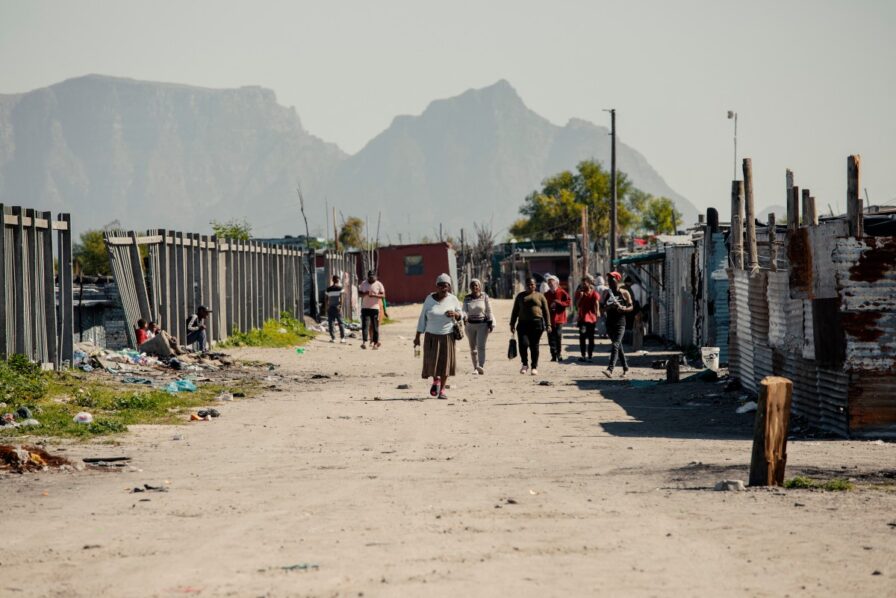
Ursula Felkers moved to “Tin Can Town” in 2007 after being evicted from an apartment near the centre of Cape Town when a new landlord took over.
She thought she would only be in Blikkiesdorp — where row upon row of shacks stand on a desolate plot next to Cape Town’s international airport — for a few months.
Intended for “housing emergencies”, the site 25 kilometres (15 miles) from central Cape Town made headlines in 2010 when the municipality was accused of moving thousands of homeless people there ahead of the World Cup.
“The city originally said this was only for three to six months,” said Felkers, 43, at her two-roomed shack made from rusting metal sheets. But a new housing project fell through and “16 years later, we are still waiting”, she told AFP.
“In summer, you suffocate inside. In winter, it’s like an icebox,” she said. There is not much here: no shops, no services, nowhere to work.
“In Woodstock (where she used to live), we had access to everything: we could walk to town, to the park, the supermarket or the butcher across the road,” she said.
Felkers’ name is among 340,000 on the Housing Needs Register for Cape Town, a city of around five million people.
Her family is one of 2.3 million on the national waiting list, most of them black and mixed-raced people whose families were forcibly displaced under the racially segregationist system of apartheid that ended 30 years ago.
– Spatial segregation –
“We had more than 300 years of explicitly racist urban planning which decided where different groups would live, and that legacy is still very present today,” said Nick Budlender from housing activist group Ndifuna Ukwazi.
The imprint of apartheid’s spatial segregation is strikingly apparent in Cape Town.
Its seaside areas and leafy inner-city neighbourhoods at the foot of Table Mountain are primarily enjoyed by white residents and tourists. On the outskirts are crowded and underserved townships where most people are black or mixed race.
They are “much further away from jobs, schools, and all the essentials needed for a decent life and a chance at social mobility,” Budlender said.
Since her husband was killed by a stray bullet at the door of their shack in 2015, Felkers has relied on social grants to raise her two children. Her son’s commute to school costs almost 1,000 rands a month (50 euros), which amounts to the entire grant.
“It takes 50 rands just to go into town and back, to put my CV out there,” she said. “If I still lived in the inner city, I would already have work.”
– Mountain of red tape –
Cape Town has in recent years signed off on 10,000 housing units on well-located land, mayoral committee member Carl Pophaim told AFP. But the actual funding to build is a big concern, he said.
The city has “released more parcels of land in the last two years than in the 10 years before that,” Mayor Geordin Hill-Lewis said in a webinar hosted by the Daily Maverick newspaper last month. But there is a “mountain of red tape”.
At the same time, Airbnb tourist listings have soared. Cape Town has around 23,500 offerings, according to research project InsideAirbnb, more than major tourist cities like Amsterdam or Barcelona.
By taking “tens of thousands of homes completely off the property market”, Airbnb is contributing to “skyrocketing” rents, said Budlender. Airbnb rejected the criticism, telling AFP that almost half of hosts say the extra income helps them afford their homes.
In her eviction, Felkers feels the weight of history. Her grandparents were made to leave District Six in the heart of Cape Town in one of the apartheid government’s most emblematic forced removals.
“Why do we have to remove people from the inner city, where we are born?” she asked. “You don’t see green parks, the mountain or the beach here. Why can’t my children have that?”






